If you’d like to have the financial freedom to retire early, know that it is possible – and it comes with many benefits, too. You could choose to travel, spend time with loved ones, pick up hobbies and so much more. The opportunities that accompany early retirement are nearly endless. However, there’s a flip side, too. The combination of lower Social Security income, longer life expectancy, and other factors mean you will need to exercise exceedingly careful planning and focus to make your goal a reality. Below, we’ll explore nine potential strategies you might use to set yourself up for a successful early retirement.
Early Retirement Guide: Early Retirement Strategies
1. Define Your Retirement Goal
Before you can effectively plan for early retirement, you need to determine what you want your lifestyle to be. What will your goals be? What will your day-to-day living expenses entail, from travel to healthcare costs and everything in between? Take it a step further by planning for inflation and then start saving with those figures and goals in mind.
2. Envision Your Ideal Retirement
Your early retirement doesn’t have to fit the traditional definition of retirement. Instead of thinking in terms of retirement, think about financial freedom. You may still want to work in some capacity – but perhaps it isn’t full-time. Once you figure out what resources you need to live the life you want, you can shape your lifestyle, including the work you do and how often you do it, to achieve your vision.
3. Start Saving Now
One of the most fundamental elements of any retirement plan is savings, and the earlier you can start, the better. Investing will help jumpstart any savings plan you create. Track where your money goes by using a simple budget that allows for minimal spending and put most of your efforts behind building up your savings. One of the downsides of retiring early is that you will not be eligible for some of the traditional retirement benefits, such as Social Security and accessing retirement accounts. Look into non-qualified investment accounts, which are taxed on an annual basis. They don’t offer the same tax benefits as retirement accounts, but they often have more flexibility in terms of how much you can invest and when you can withdraw funds.
SEE ALSO: Investing 101 for Beginners
4. Get a Side Hustle
Another popular strategy for early retirement is increasing your earnings by taking on another job. In our digital world, finding a freelance opportunity to generate some additional revenue has never been easier. Determine the skills and expertise you have that can be marketed and then get to work. Once you land a job, save all the money you bring in from this additional revenue stream. Then, keep doing it. Keep your goal retirement age at the forefront of your mind and stay disciplined to reach it.
5. Maximize Your Savings and Earnings
Compound interest is one of the most powerful elements to have in your retirement planning, especially if you plan to retire early. The concept is simple: the more you save, the more you earn on those savings. As you explore options for compound interest, you should simultaneously be working to decrease your spending. Consider your budget and reduce your discretionary spending as much as you can. Then take the money you would have normally spent and invest it instead.
6. Pay Down Debt
Debt is counterproductive to an early retirement. Not only are you spending money each month on your credit cards, student loans, and mortgages, but you’re also eating into your potential savings by paying for interest. Pay down your debt so that you can put more money towards your retirement. While it’s unrealistic for many people to live completely debt-free, the goal should be to keep it to a minimum.
7. Consider Your Tax Plan
As average life expectancy increases, many aspiring retirees may be concerned about the possibility of outliving their savings. Unexpected taxes and penalties can have a detrimental effect on retirement accounts, further compounding the issue. Your retirement plan should account for any taxes and penalties you’ll encounter when you begin dipping into your savings.
SEE ALSO: Tax Planning Strategies for High-Net-Worth Individuals
8. Generate Income – Passively
Retiring as early as your 40s is possible, but it requires discipline, focus, and – more often than not – additional income streams. Savings are a great start, but having more revenue coming in will greatly bolster those efforts. Consider some options for passive income, such as investing in real estate and collecting rental income, creating a blog or a YouTube channel, selling designs or artwork online, or many other options. The best part is you can maintain a full-time career and still generate passive income by putting in as much additional effort as you want into your side gig.
9. Consider the “What Ifs”
A solid retirement plan should be developed around your goals, but it should also account for potential pitfalls and deviations from the plan. Considerations such as inflation, increased taxes, and medical needs, among many other factors, can have a big impact on your savings. When you retire early, you have more years for these variables to change, and they inevitably will. Even though you cannot possibly predict every “what if,” you should try to pad your retirement to accommodate the unexpected.
Final Thoughts on Strategies for Early Retirement
In order to retire early, you need to take a deliberate and focused approach to securing your financial future. Discipline will play a significant role in your chances of early retirement success, from ensuring that you are maximizing the earning potential of your investments to spending your discretionary income wisely. You may also want to consider working with a professional to navigate the additional complexities that can arise when you retire a decade or two before the traditional retirement age.
At Wade Financial Advisory, we partner with you to achieve your goals, offering professional advice to help guide your financial decisions. If you are interested in learning more about how you can retire early, we welcome the opportunity to discuss the steps you can take to transform your dream of early retirement into an actionable and achievable plan. Contact us today to begin the conversation with an early retirement financial planner.










